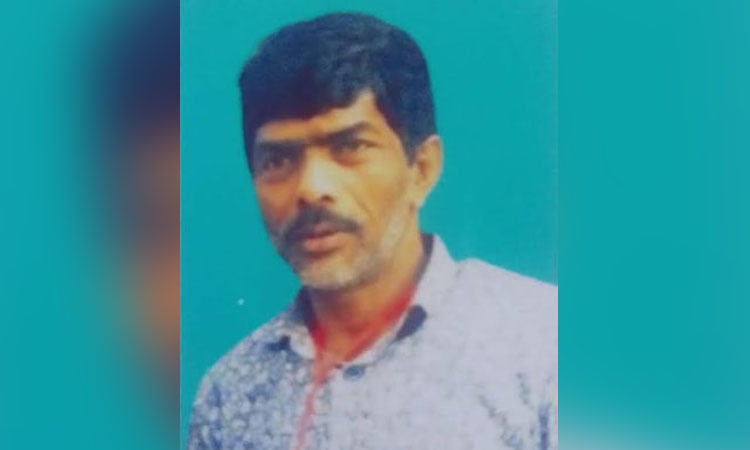News Flash
News Flash

By Sajjad Hossain
DHAKA, June 1, 2025 (BSS) – Freedom-loving people in the country poured into the streets for celebration as the country was freed from the grip of fallen autocrat Sheikh Hasina on August 5, 2024.
It was a day of jubilation across the nation - except for the family of Md Ishaq Jamaddar, who lost their father that same day during police firing. Ishaq, 47, a day labourer and devoted political activist, had joined the July uprising from the very beginning, risking his life for the cause.
He was shot and killed during a victory procession near Shyamoli Club Ground. The bullet, fired by police, struck his left arm and passed through his chest. He died shortly after.
“My father always stood against Sheikh Hasina’s fascist regime. He wanted to see a free Bangladesh where people could live in dignity,” Ishaq’s eldest son, Md Sabuj Jamaddar, 29, told BSS in a recent interview.
Sabuj, a salesman at a Walton showroom in Shampa Market under Adabor police station, recalled how joy swept the nation that day while grief took over their home.
“Victory came, but he didn’t live to see it. That’s the greatest sorrow of our family,” he said while tears rolled down his face.
Ishaq was a resident of a tin-roofed rented house in the Baitul Aman area of North Adabor in the capital. Originally from Bebajiakhali village of Sadar union in Bamna upazila, Barguna, he worked as a transporter during the day and a night watchman.
He was also the organizing secretary of BNP’s Baitul Aman Unit No. 6 under Adabor police station.
He is survived by his wife, Fatema Begum, 44, and two sons—Sabuj and Md Sajeeb Jamaddar, 25, a mason. Sabuj has a three-year-old daughter, while Sajeeb has a four-year-old son.
Ishaq was the family’s main earner. “He paid most of the household expenses,” said Sajeeb. “We just managed the rent between us. Now we are left with his debts too,” he added.
Sajeeb tearfully recalled how much his father loved his grandchildren. “They always sat on his lap when he came home. He would hold them both and play with them. He adored them.”
He added that since Ishaq’s death, their mother often cried alone behind closed doors, struggling with the loss.
“I don’t want anything else from anyone,” said Fatema Begum. “I just want justice. I want to see capital punishment of the killers in my lifetime.”
Sabuj said, “My father was on the streets since August 5 morning. He came home at noon, had lunch and then left again. I called him over phone at around 2:00pm. My father told me that he was in the Shyamoli area. At 5:00 pm, I came to learn that my father had been shot.”
Some four to five people also sustained bullet injuries at that time and embraced martyrdom, he added.
“We saw many bodies next to my father in the Suhrawardy Hospital. The bodies were piled up one after another. All those who were shot and martyred were mostly residents of the Adabor area, including Shanirbil, Adabor 10, and Tikkapara,” Sabuj said.
That evening, the family received Ishaq’s body around 7:30pm and the first namaz-e-janaza was held at Baitul Aman mosque. They left for their village home at midnight, after arriving at 6:00pm the following day, another janaza was held at 10:30pm. Ishaq was laid to eternal rest beside his parents around 11:00pm.
Ishaq was widely respected in his community. Achim Uddin, 50, who used to drive a van with him, said, “Ishaq Bhai never mistreated anyone. He was a dedicated supporter of BNP. He would pay our fares to go to party rallies and sometimes even gave us his clothes.”
BNP Baitul Aman Unit president Delwar Howlader recalled that Ishaq went to Shyamoli that morning with a procession.
“When our general secretary Abdul Mannan Fakir was injured, we took him to Suhrawardy Hospital. Soon after that, I heard our organizing secretary Ishaq Jamaddar was shot by police and he was martyred. He never asked the party for anything. He gave everything he had to make the movement successful,” he added.
Despite their immense loss, the family continues to hope for a better future.
“We want this new Bangladesh -- earned with the blood of martyrs -- to move in the right direction,” said Sabuj. “People should be able to live well. The poor should have food and dignity. Only then, the sacrifices of thousands like my father be truly honored.”